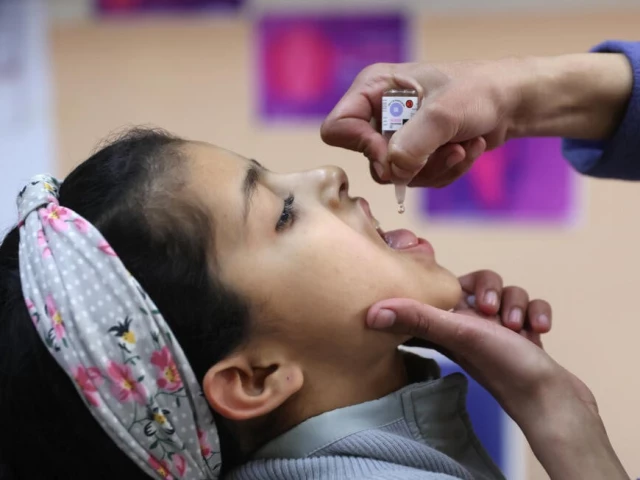Gavi: vaccine alliance facing US funding cuts
.

The Gavi vaccine alliance, which proudly claims it vaccinates more than half the world's children against deadly and debilitating diseases, is now seemingly next in line for US funding cuts.
The United States is reportedly set to axe its funding as President Donald Trump slashes foreign aid spending -- a move Gavi says could cost more than a million lives.
Despite its important role, Gavi is little known among the general public. Here is an overview of what it does, and how US funding cuts could impact its operations and child health worldwide:
Founded in 2000 as the Global Alliance for Vaccines and Immunisation, Gavi was created to provide vaccines to developing countries.
The United States has been on board from the start, as one of the six original donor countries. It now contributes around 15 percent of the regular budget.
A public-private partnership, Gavi is a non-profit organisation based in Geneva.
It works closely with the UN health and children's agencies -- the World Health Organization and UNICEF -- the World Bank and the Gates Foundation, as well as vaccine manufacturers, research agencies and vaccine-administering countries.
Its chief executive Sania Nishtar is a medical doctor and former minister and senator in Pakistan. Former EU chief Jose Manuel Barroso chairs the board.
Nishtar said the US cutting its funding would have a "disastrous impact" on global health security and potentially result in more than a million deaths from preventable diseases.
Some 97 percent of Gavi's funding goes directly to vaccination programmes, meaning that if 15 percent of the budget goes, vaccination campaigns will suffer.
Over 2026-2030, Gavi aims to protect 500 million children against 20 or so diseases -- so by its calculations, 75 million fewer children would be vaccinated.
And if around nine million lives would be saved, that number could drop by 1.3 million.
Gavi is also worried about its ability to maintain its stockpiles of vaccines against diseases like Ebola, cholera and meningitis.



















COMMENTS
Comments are moderated and generally will be posted if they are on-topic and not abusive.
For more information, please see our Comments FAQ